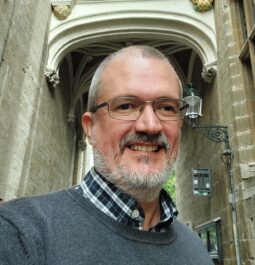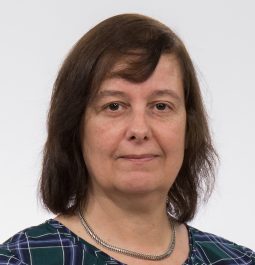Presentation
The master's degree in Digital Curation and Digital Humanities strengthens the offerings of NOVA FCSH and FCT NOVA in the area of digital transformation in teaching and research, representing an interdisciplinary confluence between the areas of Humanities, Information Sciences and Computing. It takes advantage of the experience acquired in the previous master's degree in Information Management and Curation and follows the growing interest of national and international teaching and research communities in Digital Humanities.
The master's degree in Digital Curation and Digital Humanities offers solid and comprehensive training in digital methodologies, tools and techniques suitable for new approaches to research topics in the Arts, Humanities and Social Sciences.
In addition to training specialized staff for projects, the skills to be acquired by students are highly valued in the public and private sector job market, such as knowledge in geographic information systems, web programming languages, knowledge organization, data curation, metadata management, network analysis or 3D modeling, among others.Museums, archives, libraries, municipalities, web content production companies, creative industries, tourism industries, educational institutions, among other entities, are potential employers looking for some of the digital skills mentioned.
In this sense, this master's degree has a common core in the first semester and two areas of specialization in the second semester, one in Digital Curation and the other in Digital Humanities. In the second year, a seminar will be held to monitor the completion of the dissertation, internship, or project work, in the respective areas.
This master's degree takes advantage of the experience of teachers from various departments and research units at NOVA FCSH (Digital Humanities Laboratory, IHC, CHAM, IEM and CLUNL), with solid experience in training and projects in the area of digital methods applied to the Arts, Humanities and Social Sciences. It also has a partnership with NOVA LINCS (NOVA FCT), enhancing recurring collaboration in several research projects.
Objectives
- To deepen knowledge acquired in the 1st cycle of studies and post-graduate courses in various areas of the arts, humanities, heritage, information sciences and social sciences
- Acquire new knowledge in the fields of digital curation and digital humanities, linked to research, project management and professional practices in institutions of memory and heritage
- Preparing for professional life in the context of the digital transformation
- Increase the ability to understand and solve problems in new situations
- Consolidate basic skills that enable autonomous learning throughout life
- Develop skills for collaborative research in digital environments
Areas Of expertise
- Digital Curation
- Digital Humanities
Curricular structure
Duration: 2 years / 4 semesters Total Credits: 120 ECTS
Students complete 60 ECTS in all the taught units offered and another 60 ECTS in the non-taught component.
Modalities of non-taught component: Dissertation, Project Work or Practical Work Experience with Report
The Master’s degree corresponds to Level 7 of the NQF and EQF - National Qualifications Framework/European Qualifications Framework.
Coordination



